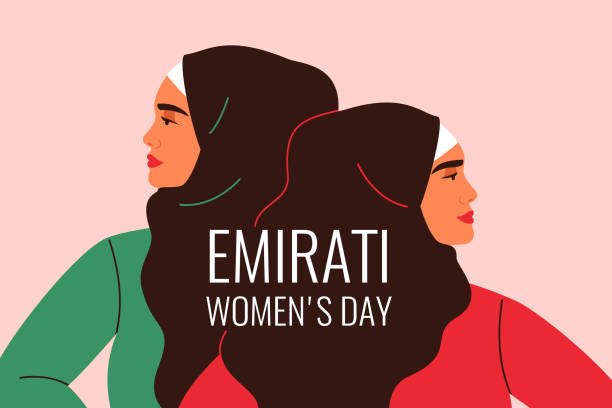Emirati Women’s Day is a day to appreciate and acknowledge the role and contributions of Emirati women in shaping the UAE.
Introduction
Emirati Women’s Day is a national occasion that honors the contributions and accomplishments of Emirati women in various fields and sectors. It also highlights the advancements made in women’s rights and opportunities within the country. The day was founded in 2015 by Her Highness Sheikha Fatima bint Mubarak, also known as The Mother of the Nation, who is a pioneer and a leader in empowering and supporting women in the UAE. Every year, Emirati Women’s Day is celebrated with a theme that reflects the current goals and challenges of Emirati women. This year, the theme is ‘We Collaborate for Tomorrow’, aligning with UAE President Sheikh Mohamed bin Zayed Al Nahyan’s declaration of 2023 as the ‘Year of Sustainability’. It underscores the UAE’s steadfast commitment to seeking innovative solutions to address issues in the realms of energy, sustainability, and climate change.
History and Significance
The choice of August 28 for Emirati Women’s Day holds great significance because it marks the anniversary of the establishment of the UAE’s General Women’s Union (GWU) in 1975. The GWU is the first and largest women’s organization in the UAE that aims to enhance the status and role of women in society. It also provides various services and programs to support women’s education, health, social welfare, and economic empowerment. The GWU is headed by Sheikha Fatima, who is also the President of the Supreme Council for Motherhood and Childhood, and Supreme Chairwoman of the Family Development Foundation (FDF). Sheikha Fatima is the wife of the late Sheikh Zayed bin Sultan Al Nahyan, the founder and first President of the UAE. She is known as the ‘Mother of Sheikhs’ and the ‘Mother of the UAE’. She has been a strong advocate for women’s rights and participation in all aspects of life. She has also initiated several initiatives and policies to promote gender equality and women’s empowerment at the national and international levels.
Achievements and Challenges
The UAE has made remarkable progress in advancing women’s status and opportunities over the past five decades. According to a 2022 report by the World Economic Forum, the UAE topped global gender equality rankings. This achievement follows UAE’s exceptional performance in key gender-related indicators, such as:
- Enrollment in Primary Education
- Enrollment in Secondary Education
- Enrollment in Tertiary Education
- Sex Ratio at Birth
- Women in Parliament
The nation also rose from the 72nd position to the 68th, affirming its commitment to continually narrowing the gender gap on the international stage. Emirati women have excelled in various fields and sectors, such as business, government, education, healthcare, culture, sports, military, and diplomacy. They have also contributed to the nation’s development and prosperity through their innovation, creativity, leadership, and resilience. Some of the notable examples of Emirati women’s achievements are:
- In 2019, Dr. Amal Al Qubaisi became the first woman speaker of a national parliament in the Arab world.
- In 2020, Sarah Al Amiri became the first Arab woman to lead a space mission as Minister of State for Advanced Sciences and Chairwoman of UAE Space Agency.
- In 2020, Noura Al Kaabi became the first woman Minister of Culture and Youth in the UAE.
- In 2020, Noura Al Matrooshi became the first Arab woman astronaut as part of UAE Astronaut Programme.
- In 2021, Sheikha Bodour Al Qasimi became the first woman President of International Publishers Association.
However, despite these achievements, Emirati women still face some challenges and barriers that hinder their full potential and participation. Some of these challenges are:
- Stereotypes and biases that limit women’s choices and aspirations.
- Lack of representation and visibility in some male-dominated fields and sectors.
- Balancing work and family responsibilities and expectations.
- Accessing adequate resources and support for career development and advancement.
Future Outlook
Emirati Women’s Day is not only a celebration of achievements but also a reminder of aspirations. Emirati women have a vision for their future that is aligned with the vision of their country. They aspire to be active agents of change and development in their communities and beyond. They also aspire to be role models and mentors for younger generations of girls and women. To achieve these aspirations, Emirati women need to collaborate with each other and with other stakeholders to address the challenges they face and to seize the opportunities they have. They also need to continue to learn new skills and knowledge that will enable them to adapt to changing times and needs. Moreover, they need to uphold their values and identity that make them unique and proud.
Conclusion
Emirati Women’s Day is a day to appreciate and acknowledge the role and contributions of Emirati women in shaping the UAE. It is also a day to inspire and motivate Emirati women to pursue their dreams and goals. Emirati women have proven their capabilities and potentials in various fields and sectors. They have also demonstrated their commitment and dedication to their country and its vision. Emirati women are the pillars of the UAE’s success and the drivers of its future. They are the collaborators for tomorrow.
Also Read: Essay on Emirati Women’s Day for Students







